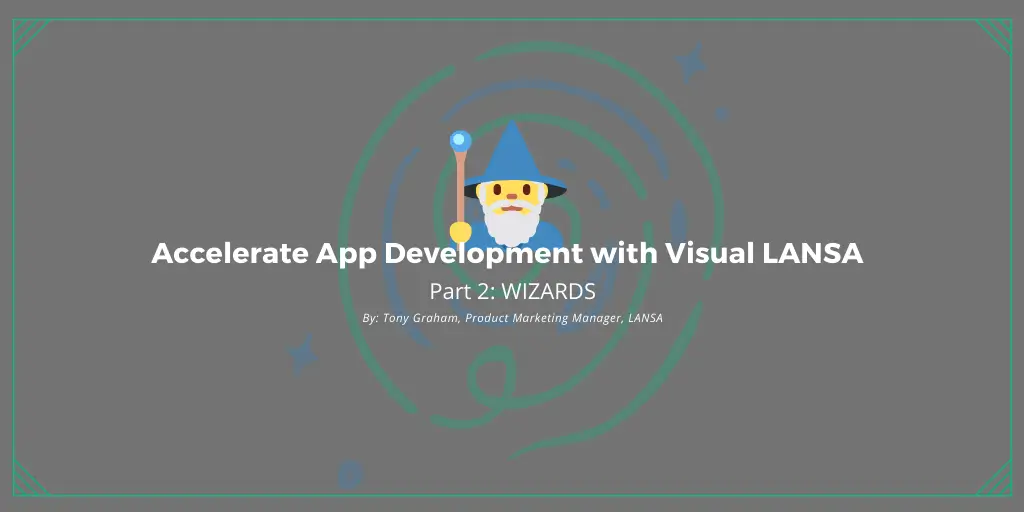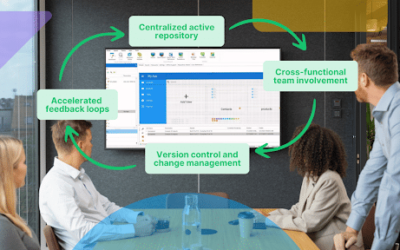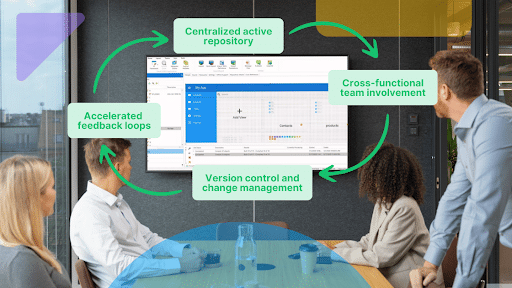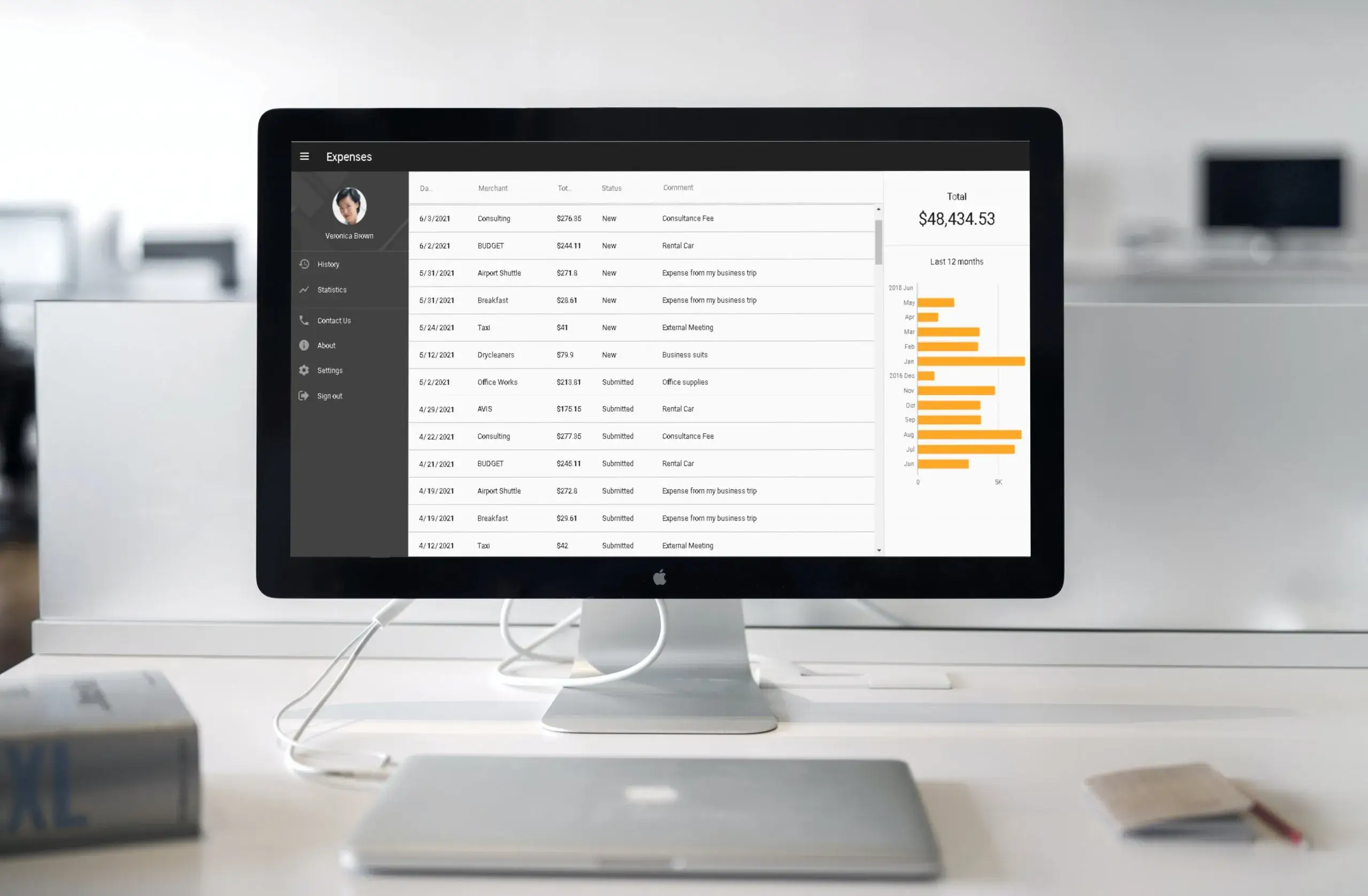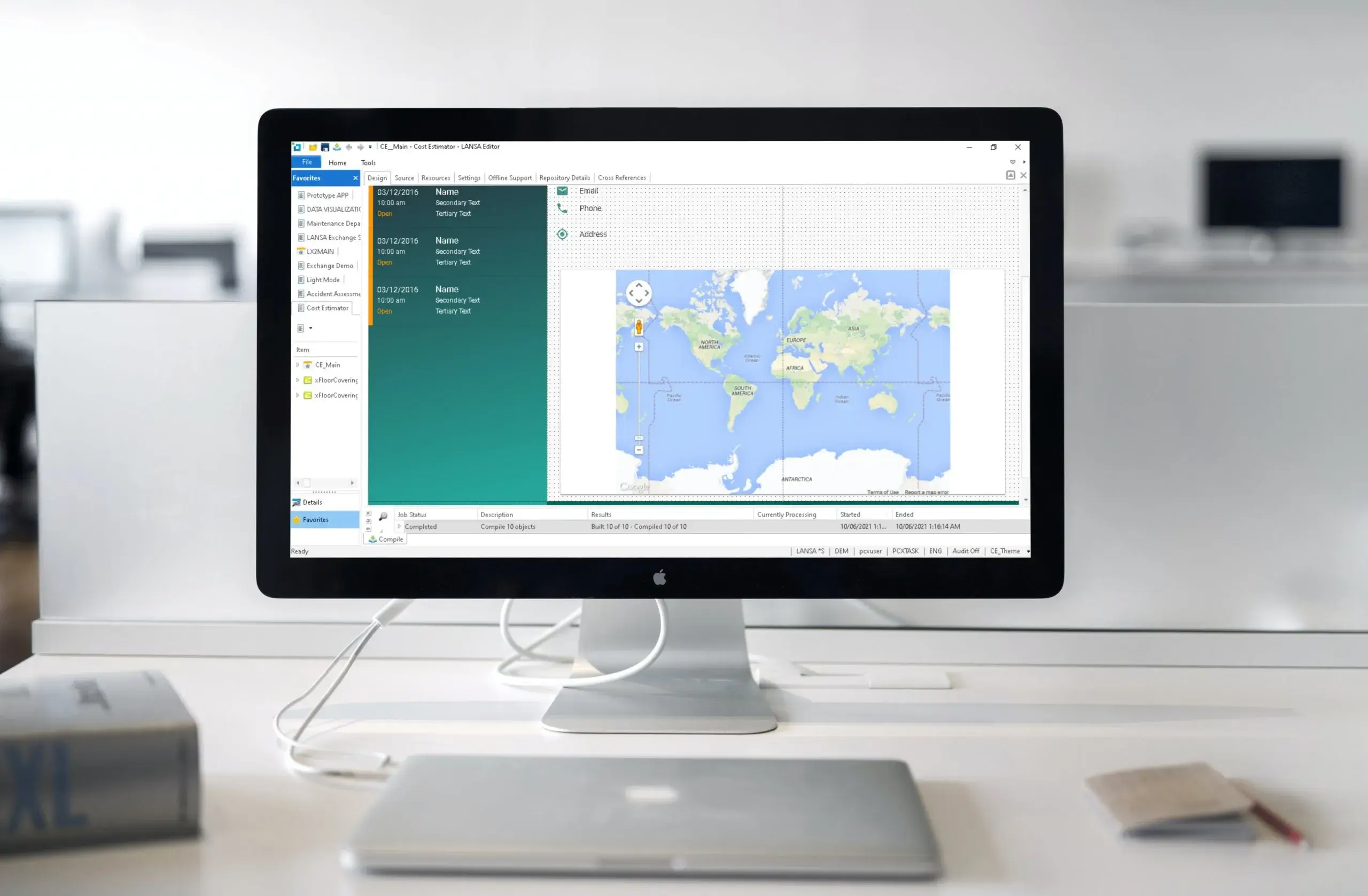Over the past few months I have been writing about the benefits of low-code and how a platform such as Visual LANSA can increase the effectiveness and efficiency of professional developers. Visual LANSA has a much different approach to low-code than the model-based low-code platforms where users work with icons and workflows. In Visual LANSA, developers have the ability to write code in LANSA’s own RDMLX language. The question becomes, if developers are not solely dragging and dropping icons, where does the low-code or the accelerated application development aspect come into play? That is a great question and one I will explain in more detail over the next few blogs. I will start with Visual LANSA’s Business Rules Engine.
Business Rules Engine
One of Visual LANSA’s most powerful features is the Business Rules Engine. The Business Rules Engine is a central repository that stores everything a developer creates with Visual LANSA. Better yet, since it is central, it stores everything created by your team of developers. Once an object is created in the repository, it is available to be used and reused by any application or developer. Let’s take a closer look at an example of using the Business Rules Engine.
Example:
You have a table named Departments that you want to access. Simply select New server module, give your server module a name and description and then select the table Departments and click Create. The server module is automatically created along with approximately 100 lines of code with all the main functions you would need when accessing the Departments table. The server module is now in the Business Rules Engine for any application or developer to use.
Another powerful feature of Visual LANSA is being able to create server side and client side applications in the same IDE using the same code. Whether the developer is creating objects to access data or create a user interface, all the objects will be centrally located in the Business Rules Engine. Notice that we created this server module in the Visual LANSA IDE, but it is accessing data on the server. If developers need to add additional functionality to this module, they just write the additional function inside in the IDE. The developer will never have to leave the Visual LANSA IDE to create custom functionality. Visual LANSA developers need to code only in the IDE and will not have to learn additional programming languages. They will not have to leave the IDE to create a workaround application in another language. The ability to easily create additional functionality by writing code inside the IDE will save your developers precious application development time. And to top it off, the additional functionality created by writing code is stored in the Business Rules Engine to be used at any time by any developer.
An additional feature of the Business Rules Engine is being able to define rules and formats for specific fields in one location. If you have a field labeled INVNUM, for “invoice number,” and this field is used by multiple tables across multiple applications, then everything about INVNUM can be defined in the Business Rules Engine. If INVNUM always needs to be defined as a length of 6 with no alpha characters and if this criterion is not met an error needs to be thrown, then this can be defined in the Business Rules Engine. The developer does not need to code these requirements into every application. They are defined in one central location and automatically applied across all applications. Being able to define everything about your tables fields in one central location means less coding for developers to write.
The Visual LANSA Business Rules Engine is an essential component in speeding up application output. As more objects and rules are added to this central repository, the less coding needs done on each application. When creating massive enterprise applications, the benefits compound to significantly decrease the time it takes to create applications.
Stay tuned for Part II – Visual LANSA Wizards, coming soon! Until then, visit us at LANSA.com for more information.


